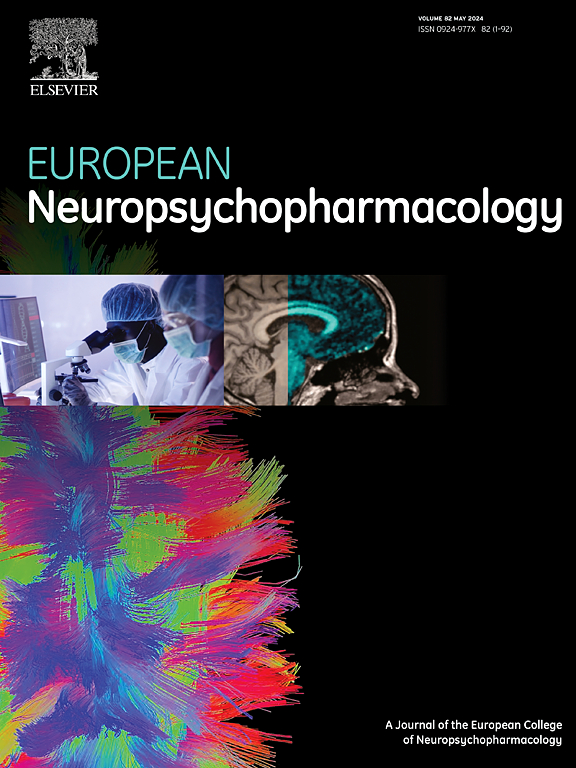在精神疾病基因组学研究中弥合语言和文化鸿沟:乌干达的经验教训
IF 6.1
2区 医学
Q1 CLINICAL NEUROLOGY
引用次数: 0
摘要
精神病基因组学研究工具经常依赖于主要源自西方观点的术语和概念,这些术语和概念是专门为讲英语的欧洲和美国人设计的。尽管如此,人们对将非洲人群纳入遗传学研究的兴趣与日俱增,因为非洲遗传学数据在提高精神病遗传学研究发现方面具有巨大潜力。然而,这项工作有其独特的困难,包括无法有效地用非洲母语向参与者传达复杂的遗传学和精神病学观点和术语。2011 年,我们建立了乌干达基因组资源(UGR)--一个特征明确的基因组数据库,其中包含一系列传染性和非传染性疾病的表型以及风险因素,这些数据来自乌干达普通人群队列(GPC),这是一个基于人群的开放式队列。UGR 包括来自 10 个民族语言群体的 5,000 多名乌干达普通人群的基因型数据和 2,000 多名乌干达普通人群的全基因组序列数据。此后,我们将 UGR 扩展到主要关注精神健康状况的研究,包括重度抑郁障碍、创伤后应激障碍、广泛性焦虑障碍、酒精滥用和自杀倾向等。为了减少以外语开发的研究工具给参与者带来的障碍,首先,我们聘请了专业的语言翻译服务,以确保所有研究材料的准确翻译。此外,我们还为研究人员提供文化敏感性培训,以确保他们与来自不同民族语言背景的参与者进行相互尊重和符合道德规范的互动。其次,在翻译好研究材料后,我们会召开一系列研讨会,包括心理健康专家、知名精神遗传学家和当地科学家,就翻译内容达成一致意见。第三,我们请一位独立的当地科学家对研究材料进行逆向翻译,以确保翻译版本的准确性和一致性。这一彻底的过程有助于最大限度地减少研究过程中可能出现的任何误解或曲解。本文章由计算机程序翻译,如有差异,请以英文原文为准。
BRIDGING LINGUISTIC AND CULTURAL DIVIDES IN PSYCHIATRIC GENOMICS RESEARCH: LESSONS FROM UGANDA
Psychiatric genomics research tools frequently depend on terminology and notions that are predominantly derived from Western viewpoints, specifically designed for populations speaking English in Europe and the United States of America. Nevertheless, there is an increasing interest in incorporating African populations into genetic studies, as African genetic data possess significant potential for enhancing discovery in psychiatric genetics research. However, this undertaking has unique difficulties, including inefficiently conveying intricate genetic and psychiatric ideas and terminology to participants using their native African languages. The absence of obvious counterparts for terms such as "trauma" or "genome" necessitates the need for unique strategies to overcome linguistic barriers.
In 2011, we established the Uganda Genome Resource (UGR) – a well-characterized genomic database with a range of phenotypes for communicable and non-communicable diseases and risk factors generated from the Uganda General Population Cohort (GPC), a population-based open cohort. The UGR comprises genotype data on ∼5,000 and whole-genome sequence data on ∼2,000 Ugandan GPC individuals from 10 ethno-linguistic groups. We have since extended UGR to include studies focusing primarily on mental health conditions including major depressive disorder, post-traumatic stress disorder, generalized anxiety disorder, alcohol misuse and suicidality, among others.
To mitigate against the barrier poised by research tools which were developed in a foreign language to the participants, first, we engage the service of a professional linguistic translator to ensure accurate translation of all study materials. Additionally, we provide cultural sensitivity training to researchers to ensure respectful and ethical interactions with participants from diverse ethno-linguistic backgrounds. Secondly, following the translated study material, we set up a series of workshop including mental health experts and leading psychiatric geneticists and local scientists to agree on the translated content. Thirdly, we ask an independent local scientist to conduct a reverse translation of the study materials to ensure accuracy and consistency in the translated versions. This thorough process helps to minimize any potential misunderstandings or misinterpretations that may arise during the research study.
求助全文
通过发布文献求助,成功后即可免费获取论文全文。
去求助
来源期刊

European Neuropsychopharmacology
医学-精神病学
CiteScore
10.30
自引率
5.40%
发文量
730
审稿时长
41 days
期刊介绍:
European Neuropsychopharmacology is the official publication of the European College of Neuropsychopharmacology (ECNP). In accordance with the mission of the College, the journal focuses on clinical and basic science contributions that advance our understanding of brain function and human behaviour and enable translation into improved treatments and enhanced public health impact in psychiatry. Recent years have been characterized by exciting advances in basic knowledge and available experimental techniques in neuroscience and genomics. However, clinical translation of these findings has not been as rapid. The journal aims to narrow this gap by promoting findings that are expected to have a major impact on both our understanding of the biological bases of mental disorders and the development and improvement of treatments, ideally paving the way for prevention and recovery.
 求助内容:
求助内容: 应助结果提醒方式:
应助结果提醒方式:


